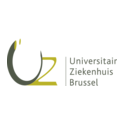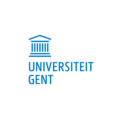In short
In the event of a food-borne outbreak, it is crucial to quickly identify the pathogen and its source in order to contain a further outbreak, and thus to avoid expensive disease treatments or serious complications with even mortality, but also unnecessary economic damage. NGS has enabled a revolution in the characterisation of pathogens, including the rapid identification of antibiotic resistance genes, virulence factors, source tracing and control of food-related outbreaks, by determining the sequence of the complete genome (WGS). However, before this technology can be applied efficiently in outbreak investigations, a number of bottlenecks still need to be addressed. In this project we develop and validate with and for the National Reference Laboratory (NRL) / National Reference Centre (NRC) an adapted Next-Generation Sequencing (NGS) platform for (sub)typing in the event of outbreaks, with Shiga-toxin producing Escherichia coli (STEC) as a case study.
Project description
NGS has enabled a revolution in the characterisation of pathogens, including the rapid identification of antibiotic resistance genes, virulence factors, source tracing and control of food-related outbreaks, by determining the sequence of the complete genome (WGS).
However, before this technology can be efficiently applied in outbreak investigations, a number of bottlenecks still need to be addressed. At the moment there is no platform in Belgium with appropriate tools to quickly generate and analyse NGS data, which is necessary for a quick response in the event of an outbreak. Since ECDC has chosen WGS as the standard method for the confirmation of multi-country outbreaks and EFSA is also working towards this, such a platform needs to be urgently implemented in Belgium.
In this project we develop and validate with and for the NRL / NRC an adapted NGS platform for the (sub)typing of pathogens in the event of outbreaks, with Shiga-toxin producing Escherichia coli (STEC) as a case study. This will also deepen the understanding of the circulating STEC isolates in Belgium. In addition to the use of WGS for isolates, the use of enriched food matrix NGS data (metagenomics) will also be explored. We will also examine how the implemented NGS-based workflow can be made generic to develop a single platform usable for NGS-based outbreak research in Belgium, by the inclusion of other bacterial and viral pathogens.
The developed platform will allow after 3 years to:
- respond quickly in times of outbreaks by modernising the current typing methods, thereby aligning the expertise with the EU level and thus meeting EU requirements
- strengthen the bioinformatics expertise in NRL / NRC
- gain insight into the circulating STEC strains in Belgium
- assist in quickly making scientifically substantiated decisions about treatment, prevention and source tracing
- offer a WGS platform for outbreak research in Belgium, i.e. one method useful for all pathogens.
Sciensano's project investigator(s):
Service(s) working on this project
Partners





